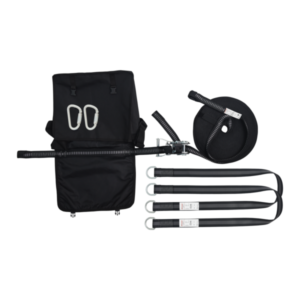In a world where families face a myriad of challenges, from communication issues to parenting struggles, the role of a family coach has become increasingly vital. Family coaches provide guidance, support, and strategies to help families navigate their unique dynamics and thrive. If you’re passionate about making a positive impact on families and are considering a career in this field, obtaining a family coach certification is a crucial step to success. In this guide, we’ll explore the ins and outs of family coach certification and how it can propel your career to new heights.
- Understanding Family Coaching
At its core, family coaching is a professional practice that aims to strengthen family relationships and dynamics. Unlike therapy or counseling, family coaching focuses on practical solutions, empowering families to identify and implement strategies that lead to positive change. Effective family coaches possess strong communication skills, empathy, and the ability to facilitate productive conversations among family members.
- Benefits of Family Coach Certification
Obtaining a family coach certification offers a plethora of benefits. Firstly, it enhances your credibility in the eyes of potential clients. Certification signifies that you’ve undergone rigorous training and are well-equipped to handle various family-related challenges. This credibility builds trust and makes clients more likely to seek your services. Additionally, certification opens doors to diverse career opportunities, from working in private practice to collaborating with schools, community centers, and organizations that focus on family well-being.
- Choosing the Right Family Coach Certification Program
Selecting the right certification program is pivotal to your success as a family coach. Look for programs accredited by recognized coaching associations and organizations. Consider factors such as the program’s curriculum, trainers’ expertise, delivery format (in-person or online), and available resources. Renowned family coach certification programs include the International Coach Federation (ICF) accredited programs and programs offered by The Family Coach Institute.
- Curriculum and Training
A comprehensive family coach certification program covers a wide range of topics essential for effective coaching. These may include communication strategies, conflict resolution techniques, parenting dynamics, understanding family systems, and ethical considerations in coaching. Practical training through role-playing, case studies, and real-life scenarios is a critical aspect of these programs, enabling you to apply theoretical knowledge to real-world situations.
- Requirements for Certification
While specific requirements vary between programs, a background in psychology, social work, counseling, or a related field is often preferred. However, some programs may accept individuals from diverse backgrounds who possess strong interpersonal skills and a genuine passion for helping families. Relevant experience in coaching, counseling, or related fields can also strengthen your application.
- The Certification Process
The journey to family coach certification typically involves several steps. After enrolling in a program, you’ll undergo a structured training period, which includes both theoretical and practical components. Assessments and assignments gauge your understanding and application of coaching concepts. The final examination assesses your proficiency in family coaching principles. Many programs also have ongoing education and renewal requirements to ensure that certified coaches stay updated with the latest practices.
- Navigating the Coaching Industry
The demand for family coaching services continues to grow as families seek effective ways to improve their relationships and communication. As a certified family coach, you’ll have the opportunity to work with a diverse clientele, ranging from nuclear families to blended families and even individuals seeking guidance on their family dynamics. This versatility allows you to tailor your services to various contexts, making your expertise invaluable.
- Marketing Yourself as a Certified Family Coach
Building a strong personal brand is essential for attracting clients as a certified family coach. Utilize social media platforms, create a professional website, and share valuable content that demonstrates your expertise. Incorporating client testimonials and success stories can showcase the tangible impact you’ve had on families, further establishing your credibility.
- Success Stories and Testimonials
Certified family coaches have the privilege of witnessing remarkable transformations within families. One success story might involve a family that struggled with effective communication but, through coaching, learned to express their feelings and needs constructively. Testimonials from satisfied clients validate the effectiveness of your coaching methods and can serve as powerful tools for attracting new clients.
- Takeaway
Becoming a certified family coach equips you with the skills, knowledge, and credibility to guide families toward positive change and growth. As the demand for family coaching services continues to rise, seizing this opportunity can lead to a fulfilling and impactful career. Remember that the journey to certification requires dedication, but the rewards are immeasurable as you play a vital role in strengthening the foundation of countless families.



